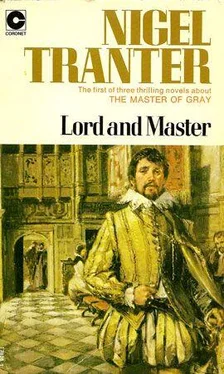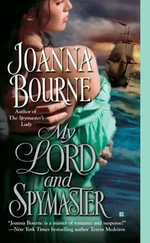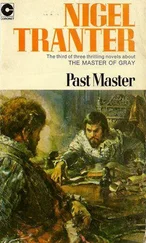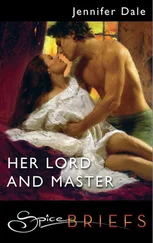Nigel Tranter - Lord and Master
Здесь есть возможность читать онлайн «Nigel Tranter - Lord and Master» весь текст электронной книги совершенно бесплатно (целиком полную версию без сокращений). В некоторых случаях можно слушать аудио, скачать через торрент в формате fb2 и присутствует краткое содержание. Жанр: Исторические приключения, на английском языке. Описание произведения, (предисловие) а так же отзывы посетителей доступны на портале библиотеки ЛибКат.
- Название:Lord and Master
- Автор:
- Жанр:
- Год:неизвестен
- ISBN:нет данных
- Рейтинг книги:4 / 5. Голосов: 1
-
Избранное:Добавить в избранное
- Отзывы:
-
Ваша оценка:
- 80
- 1
- 2
- 3
- 4
- 5
Lord and Master: краткое содержание, описание и аннотация
Предлагаем к чтению аннотацию, описание, краткое содержание или предисловие (зависит от того, что написал сам автор книги «Lord and Master»). Если вы не нашли необходимую информацию о книге — напишите в комментариях, мы постараемся отыскать её.
Lord and Master — читать онлайн бесплатно полную книгу (весь текст) целиком
Ниже представлен текст книги, разбитый по страницам. Система сохранения места последней прочитанной страницы, позволяет с удобством читать онлайн бесплатно книгу «Lord and Master», без необходимости каждый раз заново искать на чём Вы остановились. Поставьте закладку, и сможете в любой момент перейти на страницу, на которой закончили чтение.
Интервал:
Закладка:
Nothing loth and mightily relieved, James sent forthwith for the innocent Master of Gray with pleas, indeed imperative royal commands, to come quickly and take control of the rudderless ship of state.
Arran, warned, bolted from Kinneil, the royal guards conveniendy looking the other way, and fled the country.
Patrick sighed, complained that they might at least leave a man alone to his nuptial exercises – and returned to duty, resolutely refusing to admit that he was now indisputably the master of Scotland, even to his wife.
Happy Scotland, that seldom in her long history can have known a ruler at once so able and so devoid of personal ambition.
Chapter Twenty-eight
FOR the best part of a good, peaceful and prosperous year, that of our Lord 1586, Patrick Gray largely controlled the destinies of his native land – whatever the names and titles of the nominees who carried out his policies, for he still rigidly refused the office of Chancellor, or indeed any other save that of simple Master of the King's Wardrobe, the holding of which seemed to tickle his fancy. For that year, the bribery of underlings all but faded from the life of Scotland; corruption, in the major courts at least, became a rarity; and the King's law, however uncertain and curious, prevailed in all but the wildest Borders and remoter Highlands. For one year even the great lords held their hands, sheathed their swords, and waited. For one bare year.
Then on the fifth of August, Walsingham reached out his long arm and arrested Anthony Babington, in Harrow Woods, and the peace of Scotland, the pax Patricius was shattered quite.
Babington was a hot-blooded young Derbyshire squire and a Catholic. In concert with some companions of like outlook, he devised one more project for the dethroning of Elizabeth, the elevation of Mary in her place, and the re-establishment of the True Faith in England and Scotland. Unfortunately perhaps, he was more effective than most of his predecessors, more, thorough-going and vigorous. His plans were not in the clouds, but realities. Unfortunately, too, he communicated the gist of them, by letter, to Mary the Queen, though taking the precaution to sign them with a cipher.
Warned, through Giffard the Jesuit counter-spy, Walsingham laid hands on Father Ballard, another Jesuit agent who was in touch with Babington. Tortured, he at length revealed the identity of the leaders of the plot. Babington and his colleagues were apprehended, and put to the rack. Their confessions, and the progress of their plans, shook England. The ports where Spanish, French and Papal troops were to be landed were listed; estimated numbers of local supporting forces were given; arrangements for the rescue of the Scottish Queen were detailed; and, worst of all, the identity was revealed of six gentlemen who were conjointly responsible for the assassination of Elizabeth, without which the invasion could not be f assured of success – the names including Babington himself and even one, Charles Tilney, of the Queen's own Gendemen Pensioners.
Mary was taken to Fotheringay, now under closest arrest, while Parliament screamed for her blood. It mattered not how whether she knew of the proposed assassination or no. The new Act naming as guilty any in whose favour a plot might be hatched adequately covered her position, from the point of view of England's law.
Babington and his companions died horribly, on the 20th and 21st of September, as a public spectacle and warning, Elizabeth's own commands insisting that their agonies be extended for as long as humanly possible, after mutilation and disembowelling.
Parliament, in London, set an early date for Mary's trial, and, prejudging the issue, vociferously demanded the death penalty.
The trial, held in indecent haste at Fotheringay, was a farce, a mere formality, and intended to be nothing else, the judges including even Walsingham himself. Mary, denied an advocate, defended herself with vigour and dignity, but Walsingham could produce letters to prove all that he wanted, genuine or forged. Although the judges held that it was legally unnecessary now to prove Mary's knowledge of and condoning of the assassination attempt, Walsingham produced a letter addressed to Babington from the Scots Queen, plainly supporting this course. Mary, whilst admitting the authenticity of most of the other intercepted letters, swore by all that she held to be holy that this was false, a forgery, that never could she countenance the violent death of her sister-queen, that the assassination of an anointed monarch was a crime against the Holy Ghost, the assenting to which would damn her own soul to everlasting torment.
The thirty-six judges, under the Lord Chancellor, the two Lord Chief Justices and Burleigh himself, were not impressed. They adjourned the Court for a week, and on the 25th of October found Mary Stuart, daughter and heiress of James the Fifth, late King of Scots, guilty, and sentenced her to death by execution at such time and place as appointed by the Queen's most excellent Majesty. God save the Queen!
Scotland boiled into a ferment. England could not do this to her Queen – even though many S cots had called her a whore and an idolatress for years, well enough content for her to linger a captive. Imprisonment was one thing, but death by execution quite another. Moreover, this was a national insult, since no English court assuredly had jurisdiction to try and condemn the Queen of Scots. Demonstrations and near-riots broke out all over the country. The Kirk itself was moved to protest against this unwarrantable attack on the sovereignty of Scotland.The Catholic north and the Highland clans blazed alight with ire. The Estates of Parliament met and demanded the annulment of so iniquitous a trial and judgment
All this might seem strange in the circumstances, if not positively ridiculous, but it could be argued that the Scots were always a particularly thrawn, awkward and disputatious race, and wickedly proud Moreover, despite their determinedly dour and matter-of fact facade, they are sentimentalists, romanticists, almost to a man. But perhaps still more to the point is the fact that the Reformation had come late to Scotland At this time, therefore, the majority of the population had been born Catholic, whatever faith they opted for later. If the Gaelic Highlands were taken into account, as was not always the case, probably more than half the Scots people still belonged to the Old Religion.
Scotland did not seethe alone, either. France, Spain and the t Vatican, as might have been expected, sent vigorous protest, combined with dire threats, to London; but apart from these, practically every crowned head in Europe, every princeling even and petty ruler, sent envoys or urgent written representations to Elizabeth. All saw only too clearly, in Mary's sentence, a shocking and unthinkable threat to their own order – the judicial execution of a monarch. Accept that, and the entire principle of the divine right of kings was jettisoned, lost, their sheet-anchor gone.
Elizabeth neither confirmed nor rejected the death sentence. Elizabeth, indeed did nothing.
Not that she was entirely alone in that. Two others who might have been expected to be markedly active in this crisis seemed in fact to be almost entirely supine, passive. They were James, King of Scots, and his trusted mentor and minister, Patrick, Master of Gray.
James's state was, to say the least of it, curious. He made little comment on the situation, keeping his own counsel. When public opinion forced him to speak, he deplored the grievous assault on the idea of kingship, the injury done to Scotland's pride, the invalidity of the court and its judgment He did not allow himself the luxury of a more personal statement – and certainly not once did he unburden his soul of the anguish that a son must feel for a mother in such dire straits. Not for kings was the exhibition of private griefs and anxieties, he asserted – and quoted a Latin tag to prove it;, Patrick Gray's attitude was as disciplined, and more calmly assured. Elizabeth would not endorse the death sentence, he declared firmly, unshaken by all urgent demands – David's and his own wife's in especial. She could not, without disastrously weakening her own throne, endangering her own crown. She would not put another queen to death – she dare not. There was no need for alarm, therefore. No move was better than a false move in a delicate situation.
Читать дальшеИнтервал:
Закладка:
Похожие книги на «Lord and Master»
Представляем Вашему вниманию похожие книги на «Lord and Master» списком для выбора. Мы отобрали схожую по названию и смыслу литературу в надежде предоставить читателям больше вариантов отыскать новые, интересные, ещё непрочитанные произведения.
Обсуждение, отзывы о книге «Lord and Master» и просто собственные мнения читателей. Оставьте ваши комментарии, напишите, что Вы думаете о произведении, его смысле или главных героях. Укажите что конкретно понравилось, а что нет, и почему Вы так считаете.












